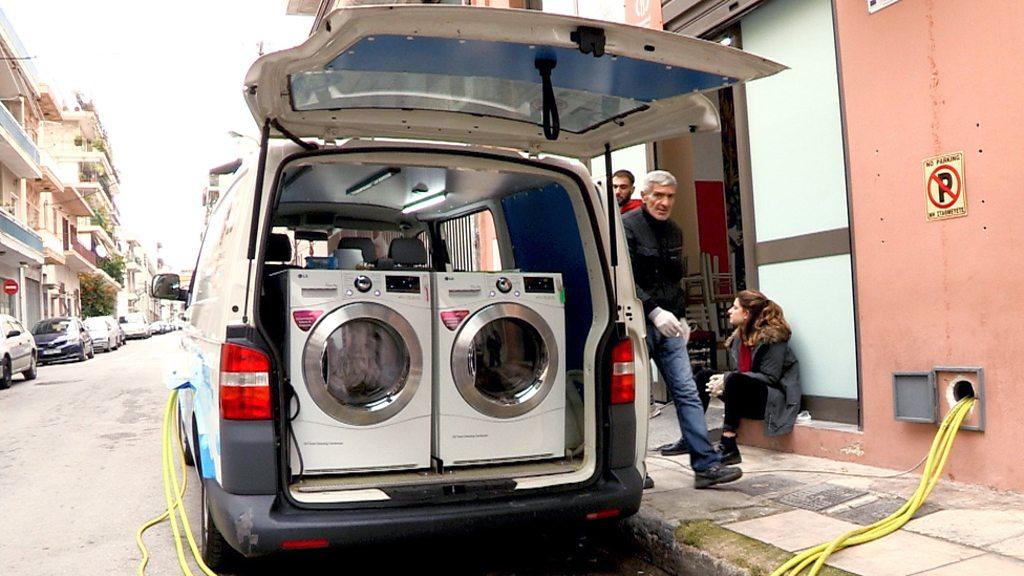Coronavirus: How will launderettes come out in the wash?
- Published
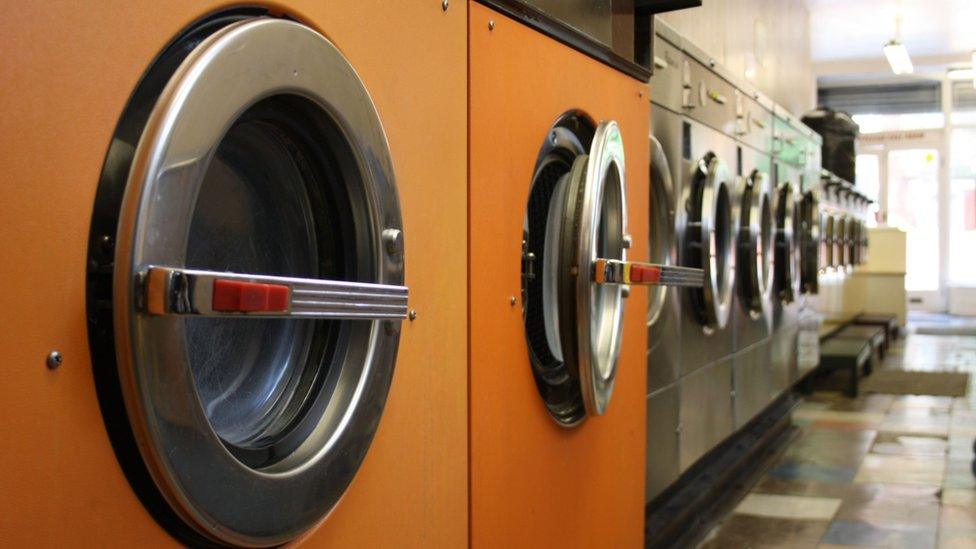
The turnover of dry cleaning at Swift Launderette in Kings Heath has dropped to near zero during lockdown
Launderettes have been at the heart of communities for decades but despite being deemed an essential service during the coronavirus lockdown, many owners say their businesses are suffering. What does the future hold for them?
From the outside, they look a bit like a waiting room - the occupants gazing quietly at the machines as their clothes whirl round.
Photographer James Wise has always been drawn to the charm of their interiors and facades, photographing the people who own them and the people who use them in towns across Lancashire.
When the lockdown was announced, the 33-year-old continued to document those near his home in Chorley.
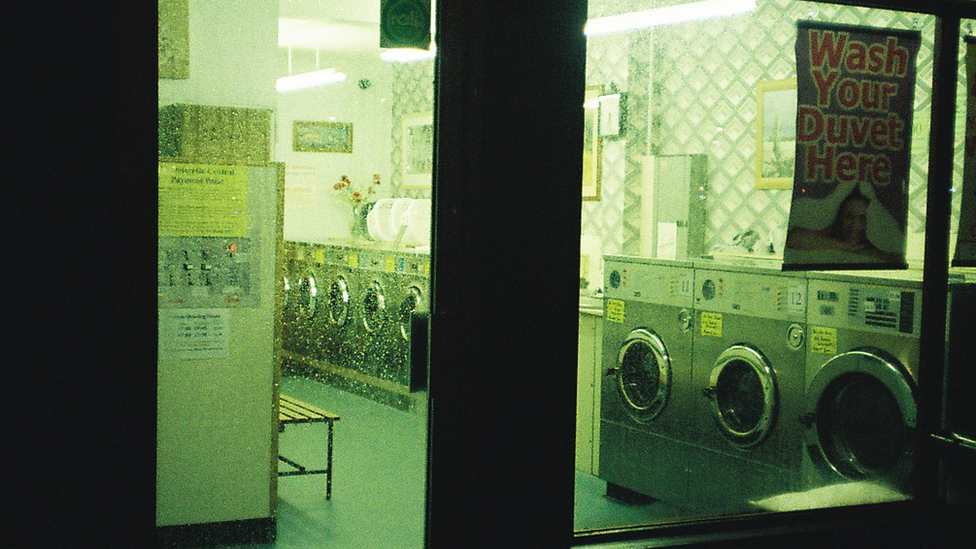
The Washbowl on Pall Mall, Chorley, features heavily in James Wise's Instagram series
"I find launderettes fascinating. They are preserved anomalies - a time capsule. High street shops are so sterile and are geared towards not offending anyone, whereas launderettes are full of character.
"I still use the machines and feel nostalgic about my childhood, as I have so many memories from them. Pre-coronavirus, I remember them being bustling with people.
"Now there is a nervous apprehension from people not wanting to get close to each other. It's a solemn mood - there is just a hum of the machines."
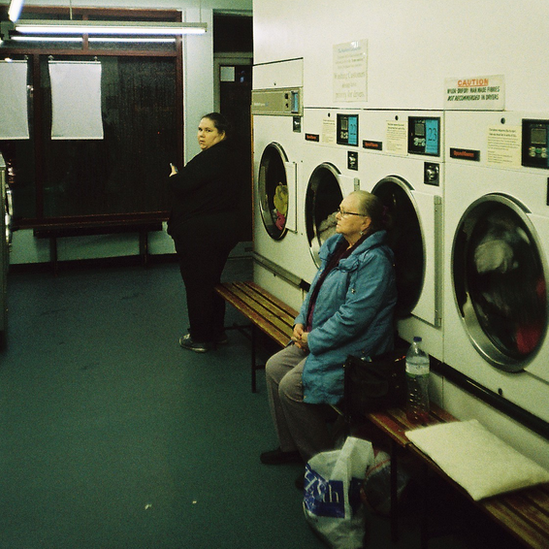
The photographer noticed the mood at launderettes has become "solemn" since the outbreak

The Washtub on Moor Road features heavily in James' photographic series, which he posts on his Instagram account, external.
Owner Imtiaz Master, who has been in the business for 12 years, said his shop has been "significantly impacted" due to the outbreak. The 32-year-old said he is worried about the future of his business.
"We've seen a 90% reduction in a lot of the elderly customers who come in on a weekly basis. If this continues with the amount of customers I'm receiving, I may have to shut as I won't be able to afford my bills for electric, gas and water."
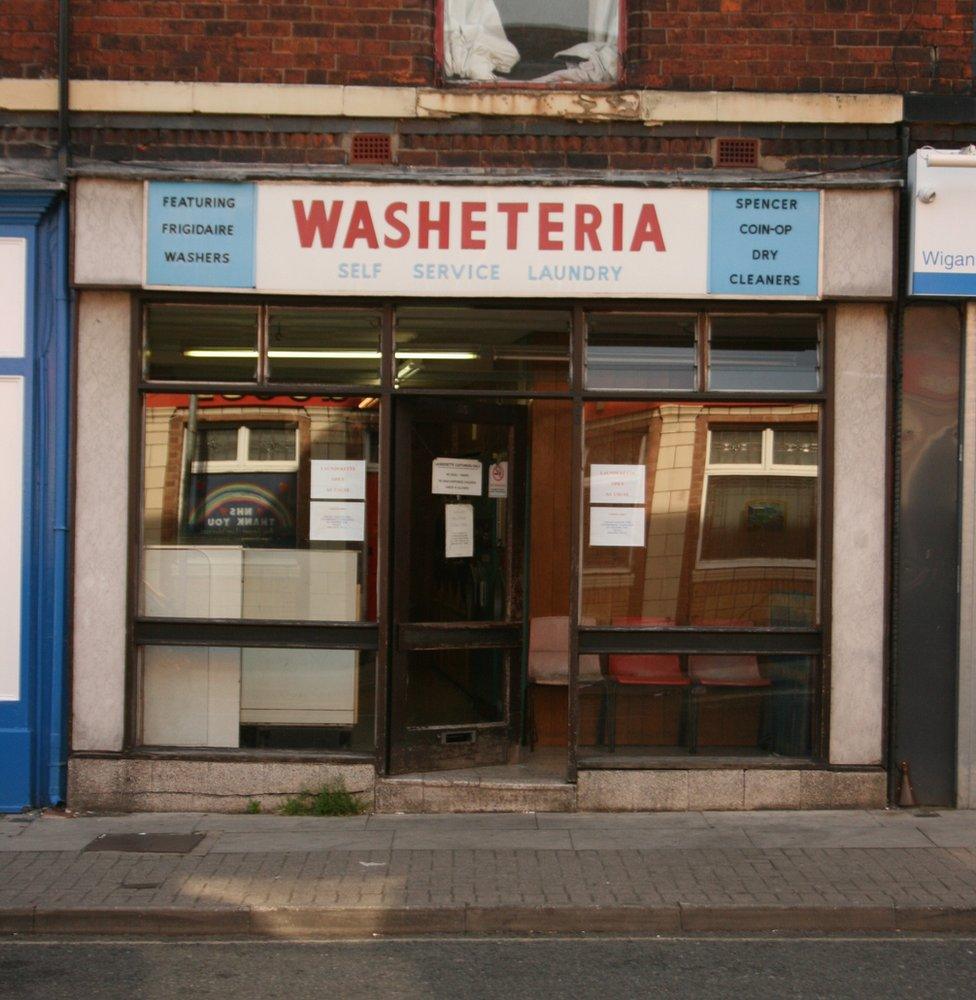
Prior to the lockdown, James photographed launderettes around the north-west of England, including this one in Wigan
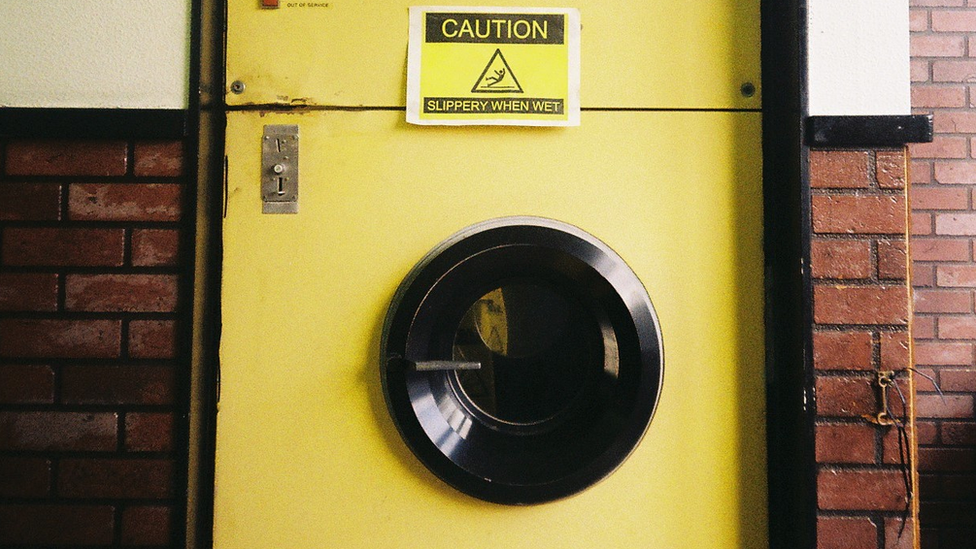
James says he has been drawn to the charm of launderettes since he was a child
The Washbowl Launderette on Pall Mall has been in operation since 1960 and its owners span three generations of the same family. Taryn Baker left a job in London to take over the business last year.
"I grew up with the business being part of family life," said the 31-year-old. "During school holidays, it was a treat to travel around Lancashire with my grandparents to check on the machines and staff."
Taryn said she "remains hopeful" about the future and is working on updating her business strategy to move forward.
"There is no doubt that Covid-19 has financially impacted our business with our turnover dropping substantially."
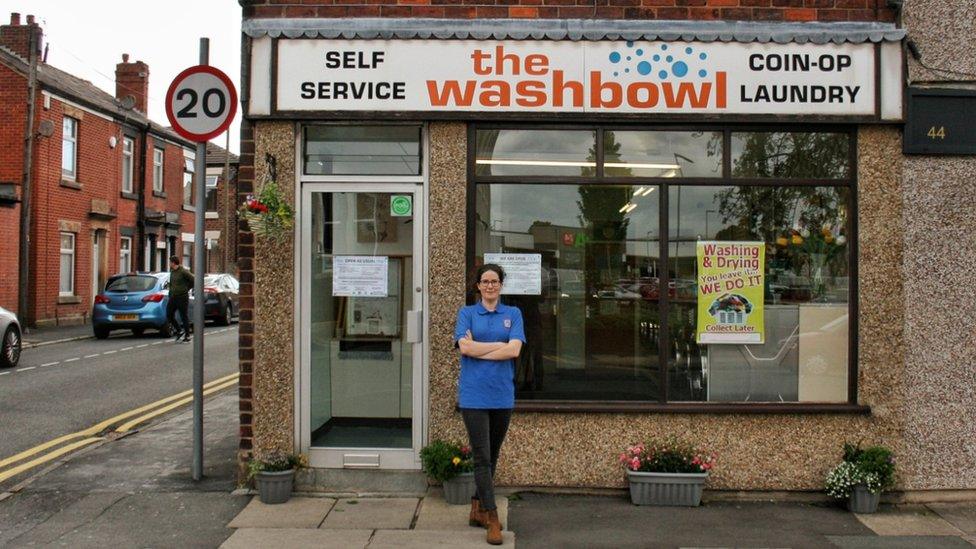
Three generations of Taryn's family have run The Washbowl since it opened in Chorley in 1960
The landscape is similar at launderettes across England. Derek Read inherited Swift Launderette from his father, who opened in Kings Heath, Birmingham, in 1950.
"I grew up in launderettes and I remember when it was normal to have to queue to use a machine. For many years, they were the social hub of many communities, with much gossip and many scandals being discussed.
"We chat to our regular elderly customers as much as possible as many are lonely due to the social isolation," the 63-year-old added.
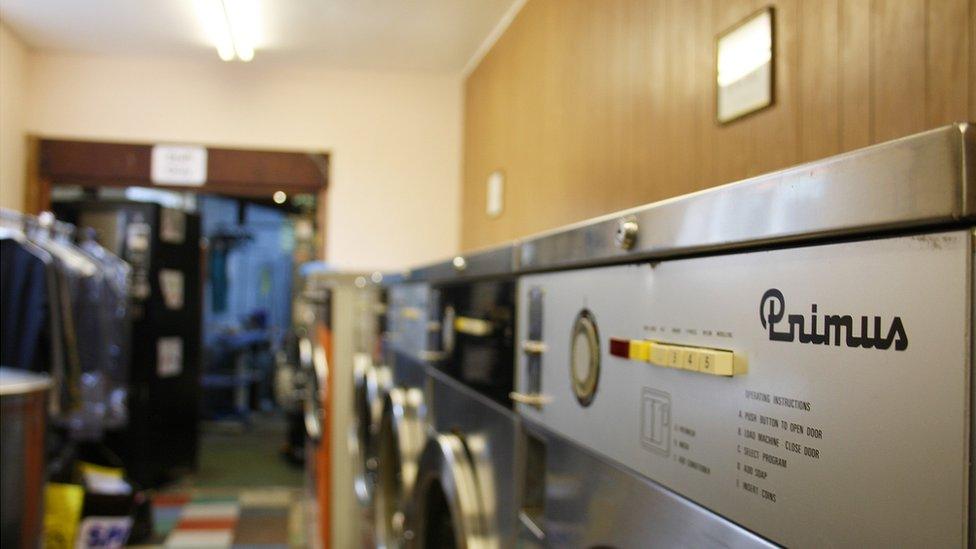
Swift has been on Poplar Road in Kings Heath since the 1950s
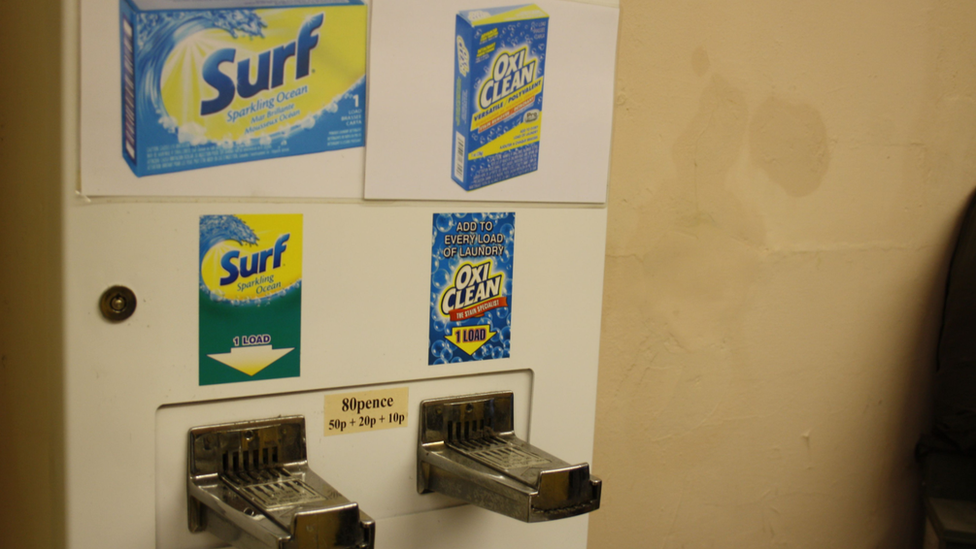
Owner Derek Read says they were once a "social hub"
Derek has seen dry cleaning turnover drop to "almost zero" and is unsure what the future holds.
"I suspect many in this industry will find it impossible to continue if the lockdown continues much longer."
You might also be interested in:
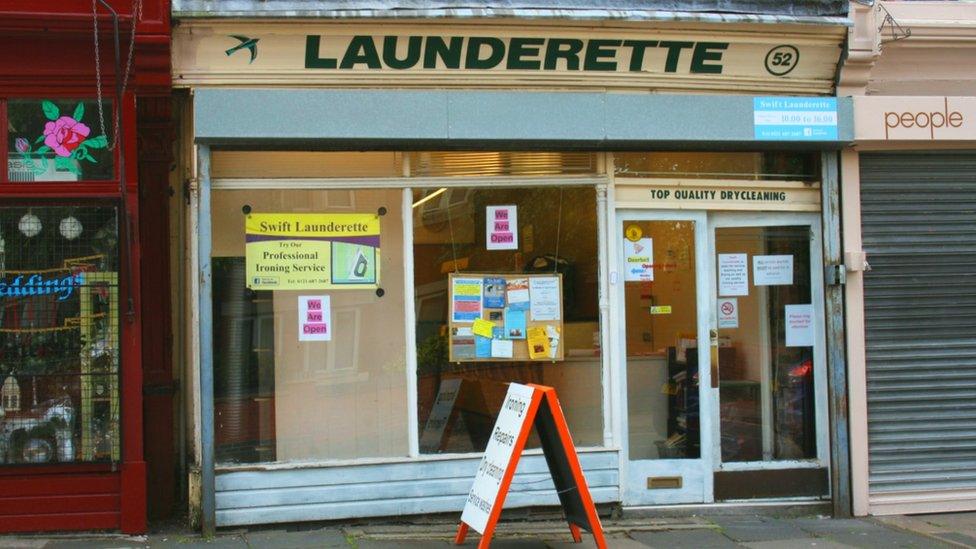
It was once normal to queue for a machine at Swift
Mark Gillows quit his job at a rugby club to open four shops in Wiltshire and Bath in 2004.
"My first memory of launderettes was the warmth from the big old tumble driers hitting me - like when you step out of an aeroplane in Barbados," said the 48-year-old.
"It has become quite trendy to want to own one. They are community-based and this can be a lifeline to people who use the launderette facility to not only do their laundry, but to socialise too."
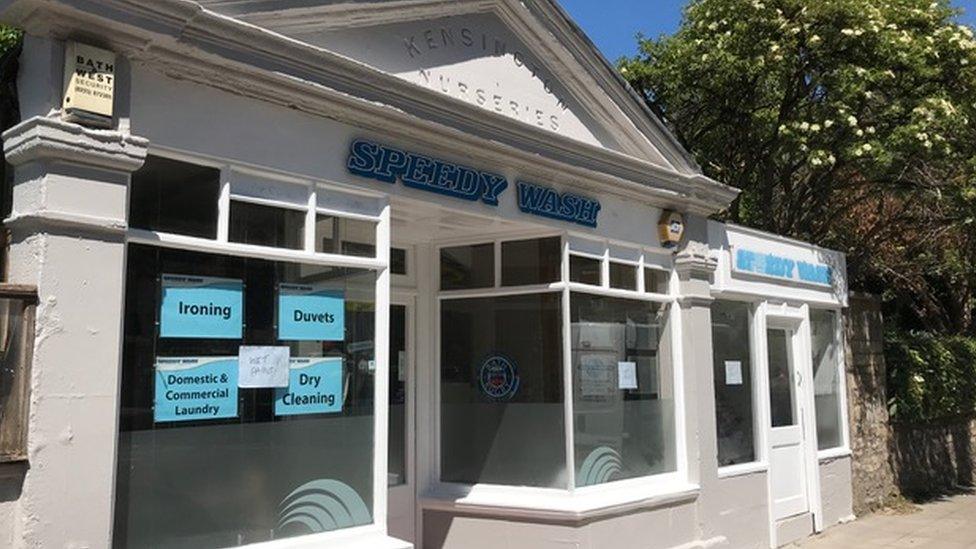
The owner of Speedywash in Bath remains "hugely optimistic" and believes "cleaning is even more essential now"
The impact on the Bath branches have been "dramatic", but "not by all means grave". In fact, Mark remains "hugely optimistic" for the industry.
"The word cleaning has taken on even greater meaning now, as people come to terms with living in a society where it has become even more essential."
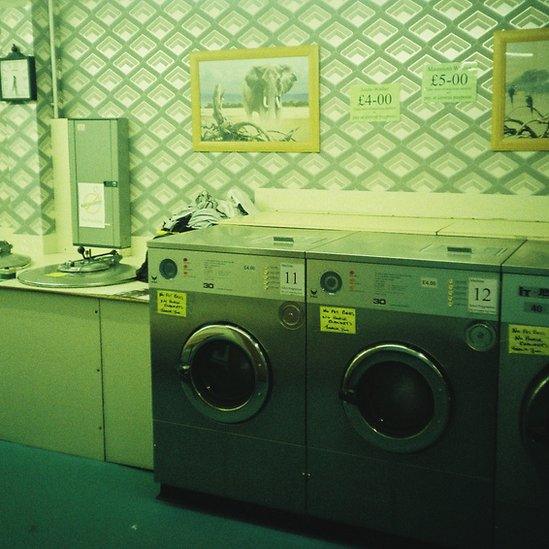
James hopes to exhibit his launderette photographs in July

James, who has struck up friendships with some of the launderette owners, hopes to show his photographs at an exhibition in July at The Tap in Manchester.
"I would be so upset if [the launderettes] had to close. The owners are in a precarious position and their livelihoods are at stake.
"Launderettes are some of the last shops left in the world with personality."
Photographs by James Wise and Lauren Potts.
- Published22 May 2020
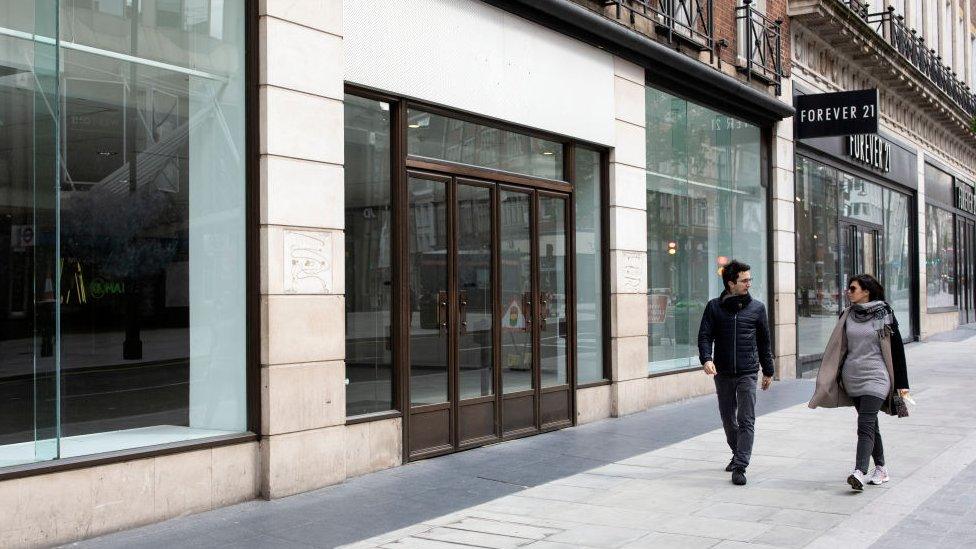
- Published7 April 2020
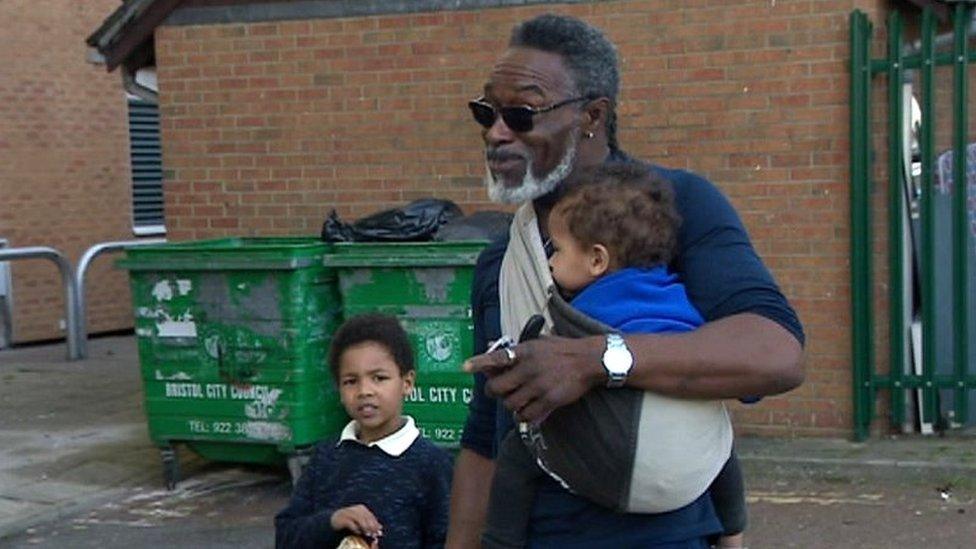
- Published3 April 2020
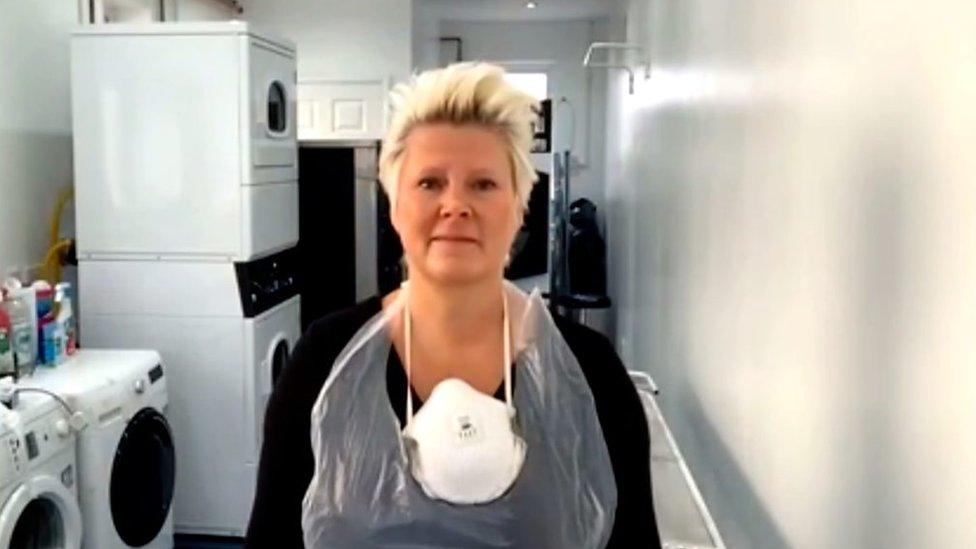
- Published23 May 2018
